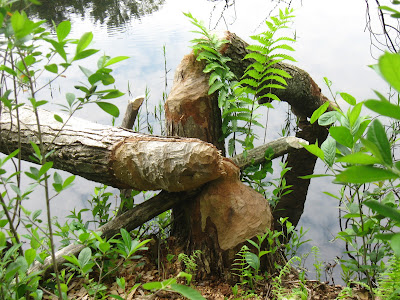Copyright Daniel E. Levenson 2012
Western Massachusetts and the Berkshires in particular, can
feel much more like Upstate New York or Vermont than a part of the
Commonwealth, but this part of the state offers relatively large tracts of unbroken
forest, meadow and marsh which are absolutely vital for the health and
well-being of Massachusetts wildlife. It’s
been many years since I last explored the western part of the state, but this
weekend my girlfriend Joanna and I decided to spend a couple of days exploring a few
places in Berkshire county, looking both at places which have been set aside
and designated as wildlife habitat (Mass Audubon’s Pleasant Valley Wildlife Sanctuary)
as well as places where human use and habitation intersect with the natural
world.
On the drive west we
saw a number of birds along the highway, including a pair of Turkey Vultures,
birds which were rarely seen this far north in the first half of the 20th century and which have now become relatively common in Massachusetts. Given
the possibility of inclement weather on Saturday, we decided to visit Pleasant Valley Wildlife Sanctuary first. The view from the parking lot was great, and there was an
extensive list of recently sighted birds on a board outside the nature center,
including many warblers I have yet to see this year. I realize that we are past
peak migration, but I was holding out hope that I might add a bird or two to my
year list. This sanctuary is also known as a good place to see beavers and
beaver activity – while there was abundant evidence of the latter, unfortunately
we did not see any of the creatures themselves.
Copyright Daniel E. Levenson 2012
It was a fairly warm and muggy day, but the bugs weren’t too
bad, and in addition to two pairs of Brown-Headed Cowbirds and a Baltimore
Oriole, we came across several frogs and this Red Eft, a terrestrial form of the Red-Spotted Newt, shown in the photo below. When I was a kid we used to hunt
for salamanders under rotting logs and brush in the backyard, but I don’t believe
I have ever come across a Red Eft or a Red-Spotted Newt before –
definitely an exciting discovery for me. Apparently this an intermediate phase
for these amphibians, previously living completely aquatic lives before moving
onto land in the “eft” stage, followed generally by a return to a life underwater as
adults. I also learned after we left the woods that these animals can secrete a poison through their skin, which explains what might otherwise be a rather fatal choice of coloration, drawing the attention of potential predators, in the New England woods.
Copyright Daniel E. Levenson 2012
Given that the sanctuary has a number of ponds, streams and
wetlands it was not surprising to see either this Red Eft or a number of
dragonflies in the surrounding meadows.
Along the muddy trail that circled one interlocking patch of
marsh and stream we came across large areas covered in emerald-green ferns of
varying size, including a number of plants which we might refer to as “Fiddlehead
Ferns,” although in truth this term can be applied to any of several different
species of fern which are harvested while in this early, curled, phase of life.
In doing a little research after our walk I discovered that in fact several
species of fern are quite toxic, which is one reason I tend to stay away from
foraging, although I have no doubt that if done properly with an expert it
might be an interesting activity and perhaps done in a sustainable way, I
prefer to leave the collection of edible plants to experts and of course only
in places which are not protected, which wildlife sanctuaries obviously are. In any case,
we have had a rather strange spring in Massachusetts with wildly fluctuating
temperatures over the last couple of months, so it was nice to be outside in
late May with the sun shining above and these green, curled-up symbols of
spring decorating the forest floor.
Copyright Daniel E. Levenson 2012
We finished up our walk by completing a loop that brought us
back to a vibrant meadow where we were once again greeted by dragonflies and
Tree Swallows.
Copyright Daniel E. Levenson 2012
Coming
soon: Part 2 of our Berkshire adventures, exploring the intersection of human
use and the natural environment in the Berkshires.
Copyright Daniel E. Levenson 2012.






Cool pics. Sounds like fun!
ReplyDelete